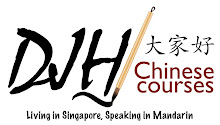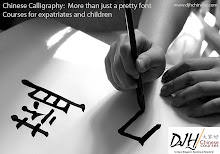Saturday, October 31, 2009
Poker King 撲克王
Randy (Louis Koo) is the heir to a major casino business, but has never been interested to inherit the gaming empire after his father’s death. While Uno (Lau Ching Wan) has been helping to run the business, he has every intention for Randy to take over the business empire. Randy is obsessed with online gaming of Texas Hold 'Em Poker and Uno takes the opportunity to put Randy in a real tournament. Randy is put through some hardship before he learns the art of the game. Along the way, Randy falls in love with Smiley (javascript:void(0)Cherrie Ying), a girl who has a winning streak at the casino. Meanwhile, Uno starts a relationship with rival casino owner Ms Fong (Josie Ho). At the end of the championship match, the two top players – Randy and Uno face off against each other. As the last hand of cards is dealt to the two players, who is going to be the Poker King?
上映日期:2009年10月22日
,導演:陳慶嘉,秦小珍 ,
演員:古天樂 ,劉青雲,鄧麗欣 ,
故事大綱 : 世界撲克王大賽進入了最後決賽,賭桌兩邊坐的男人,以贏取撲克王的榮譽,來了結兩人之 間的恩怨。
張人杰(古大樂飾) 與卓一(劉青雲飾) 之間的賭局,早在一年多前的現實中開始。
卓一是博彩企業的大總管,張人杰父親死前,給他一個三國時諸葛亮面對的難題----- --如果張的獨子張人杰沒有接管賭業的能力,卓一可以取而代之。
張已死了三年,卓一幾乎忘記了自己並非真正的老闆,直到這天賭場的新撲克廳開業,況小 姐(何超儀飾) 來祝賀時,提起這一點。
況小姐是敵對賭博集團的第二代,剛接管了家族生意。上場第二天,就把所有父親的親信炒 掉。她是不折不扣的賭徒性格,不贏盡,情願輸盡。
她是故意激怒卓一的,她欣賞卓一,很想羅致旗下,但不成功,從此針對他,不讓他有好日 子過。
卓一這才記起像人間蒸發了的張人杰,立即派人天涯海角去尋找。
張人杰本來很不喜歡父親開賭,他從不願離開校園,在加拿大大學唸完一個學位又一個學位 ,直至他在網上遇上了德州撲克。
過去三年,他躲在卡加里的屋中,幾乎沒出過來。唸數學的他,迷上了這種撲克遊戲,每天 對著三個電腦屏幕,同時玩十六局。三餐都是叫外賣pizza,像個活在深山的武林高手 。
卓一的手下爆門進入他屋時,他剛贏了一局大牌。這時他在網上的籌碼已滾存至百多萬美金 。卓一真的想把生意交回給張人杰,但完全不通世情,甚至不懂與人相處的他,回來之後, 很快便成了行業中的笑柄。最大問題是他一點也不尊重卓一。
為了見他網上撲克情人施晨(應采兒飾) 一面,他不惜重金贊助撲克王比賽。他以為可以在情人面前威一下,結果相反,他在初賽已 出了局,而且輸得很難看。
他大發脾氣時,卓一說他的技術沒問題,是輸在不懂得看人。他當然不忿,卓一這時拿出他 父親的遺囑並連同錄影帶,說要接管他的賭業,因為再下去,這個王國將敗在他手上。
他有最後一個機會-------可以跟卓一賭一局。他選了他擅長的撲克,輸了。
離開時他還有網上贏來的百多萬美金,但不到一晚已給一個女孩子騙去。
他才真正知道他真的不懂看人,在網上虛擬世界還可以,現實世界會一敗塗地。
在他最失意的時候,他遇上了一個幸運的女孩。賭場一角忽然圍上一堆人,原來一個女孩連 逐贏了十舖大細,但每次只是一小注一小注地押,旁邊跟她賭贏錢的,都比她押得大。贏了 近一千元,她便離開。
好奇心驅使,張人杰認識了何笑容(鄧麗欣)。她原來從少多病,自覺是個不幸的人,不知 何解,前幾天發覺自己有了幸運,不相信,到賭場試試,果然贏了。害怕幸運很快失去,她 不敢賭得太盡,贏一點葯費便算。
張人杰利用了她的幸運,為自己贏回第一注本。同時,他認識了賭場少女荷官樂樂(KAM A飾) ,教他如何在賭桌前分析不同人的賭法。
況小姐得悉杰在撲克廳中贏了錢,主動邀約合作。由她打本讓他參加撲克王大賽,並策劃讓 他從卓一手上取回他的博彩王國。
逐步建立起聲譽的杰重遇施晨,幸運的笑容此刻竟發覺她已失去了她的運氣,再沒能力幫助 杰。她怕杰會因她而得到不幸,施晨與他反正是開了很合襯的一對。
笑容離開了杰。
卓一從趕走杰的一刻起,一直在暗中照顧他。他知道杰一定要在現實生活磨練才可成功。他 很矛盾,既想保留這個王國,又想杰最終可以從他手中贏回。他千方百計看穿別人,卻看不 清自己。
小縱明白他。她是他的貼身保鏢,也是暗戀著他的女人。他一直以為她是女同性戀。用撲克 來形容,她是一個明知底牌沒機會勝出的玩家,她甘心跟下去,只是為了讓她喜歡的人有機 會看清她的底牌。
杰向卓一發出邀請,請他參加即將舉行的世界撲克王大賽。卓一明白,是決勝負的時刻。
比賽之前,荒謬的事發生了,卓一居然胡塗地與對頭況小姐上了床。
比賽到最後,兩雄相遇。卓一不是因杰計算之準而驚訝,杰不只能看透人,還懂得影別人 的思想和判斷。
正因如此,杰看穿了卓一,他一直想他成為真正的賭王。
最後一局的牌發下來,誰會是真正的撲克王?
Friday, October 30, 2009
What is the Difference between Chinese and Mandarin. Which one shall I study?
.jpg)
After sharing so much Chinese learning materials and Chinese related entries, let us go back to the basics.
The other day, a follower of this blog asked me what is the difference between Chinese and Mandarin and which one she should study. Here is a simple explanation.
Chinese includes all dialects used in China, including Mandarin, Cantonese, Hokkien, Teochew etc. These are the few major ones and there are too many to be listed.
Mandarin is the standard official language in China. Just like Japanese which exists many dialects such as Kansaiben, however, the Kanto version is chosen as the standard Japanese. Mandarin is also known as 国語(guo2 yu3), meaning " the national language" in China, Hong Kong and Taiwan. It is also commonly known as 普通話(pu3 tong1 hua4), meaning " a common language". In Singapore, Mandarin is commonly known as 華語(hua2 yu3), meaning " the Chinese language" in order to identify the Chinese race among others such as Malay and Indian in this multiracial nation.
Since Mandarin is most commonly used, when people mention about "Chinese", it usually refers to Mandarin. In the case when referring to other Chinese dialects, people usually indicate the specific dialect such as Cantonese etc. Hence, Chinese, Mandarin, 国語(guo2 yu3), 普通話(pu3 tong1 hua4) and 華語(hua2 yu3) generally means the same thing.
Although there are many dialects in Chinese, the dialects are mainly used as verbal communication tools in different regions of China. For the written form, Mandarin is the only standard. Therefore all written documents in modern China are written in Mandarin and students learn Chinese by writing in the Mandarin form as well.
In Hong Kong and most parts of Guangzhou, the main communication tool is Cantonese. The Chinese education system in Hong Kong had been using Cantonese as the medium of teaching for a long time until near the end of the British rule. The learning of Chinese using Cantonese is possible as the written Chinese text can be read 100% using Cantonese pronunciation. However, it is important to know that reading Chinese text in Cantonese is different from conversational Cantonese. Although the language structure and grammar of both Mandarin and Cantonese is very similar, we use different words for the grammar such as "is", "at" and many other vocabularies are totally different. I understand that this can be very difficult to understand for non-Chinese and non-Cantonese speakers. If I am not wrong, it will be similar to French and German or Spanish where the structure and grammar are similar but they are totally different languages.
Due to this difference between written Mandarin and spoken Cantonese, Hong Kong people has developed a written form of "conversational Cantonese". This written form of "conversational Cantonese is usually found in casual texts such as magazines, comics, letter to friends, online chat rooms etc. This explanation can be a little confusing, what it means by "written form of "conversational Cantonese""?? It means by reading the Chinese text in Cantonese, it will sound like conversational Cantonese. To illustrate further, it will be like "yar, wads up?", "Nah, I'm not gonna be a cop.", "I wanna", that expresses verbal conversation. However, the differences in the words when compared to the standard written Mandarin is so great that a non-Cantonese, even if he is proficient in Mandarin, will have no idea what the written form of "conversational Cantonese" is talking about.
To end this completed entry, Mandarin or Chinese is also knows as 中文(zhong1 wen2) and 汉语(han4 yu3). In Japanese, it is 中国語 or 北京語. Good luck. You guys learning Chinese are really brave.
Thursday, October 29, 2009
DJH Chinese & Japanese Localization

DJH Chinese & Japanese Localization helps companies to bring their businesses into the Chinese and Japanese Market by transforming their product and service information into Chinese and Japanese context, allowing their Chinese and Japanese customers to have an accurate understanding and access to their products and services more quickly, overcoming the language and cultural barrier.
Services
- Translation of all languages to Chinese (traditional or simplified) and vice versa.
- Including Business documents and Academic documents
- Examples: Websites, letters, mails, certificates, contracts, proposals, invoices, reports, presentations, user manuals, posters, brochures, licenses, awards, name cards
- Providing subtitles and time coding to movies

Our translators are native Chinese and Japanese who have studied or lived overseas for a substantial period of time. They are proficient in the languages, cultures, businesses as well as technical aspects of both the foreign country and the Chinese and Japanese market. With talents who are equipped with the necessary knowledge and skills of both sides of the world, inaccurate interpretation and unnecessary misunderstandings, which are a common problem with translators who are only paper-certified in the languages, are avoided. Our hassle-free services are delivered efficiently and at competitive prices.
For enquiries please email to:
enquiries@djhchinese.com
Tel: +81-08-3825-1950 (Japan)
Monday, October 26, 2009
中国人和老外容易发生的10大误会

你和老外闹过笑话或者误会吗?中西文化差异会造成两方人对某些事情的态度和做法的不同。加强沟通,理解万岁。为了让你和老外轻松相处,我们总结出经常发生的10种误会及其解决方法。
Top 10 赞美
西方人乐于赞美别人,同时也乐于接受别人的赞美。而中国人为了显示谦恭,常常会“拒绝”他人的赞美。这种“拒绝”会让老外觉得莫明其妙,好像你不领他的情似的。
还有,中国人出于礼貌,或者想跟人套近乎,总是愿意说些关心人的话。为了献殷勤,我们常喜欢对客人说"You must be tired? Have a good rest."。然而,普通的问候之语却有可能让西方人误解为你对她的身体状况表示担忧。他们很喜欢别人夸他们年轻、强壮,如果你质疑他们的身体健康,他们 甚至会发怒的。
Thursday, October 22, 2009
世上只有妈妈好。Only my Mum is the best in the world
世上只有妈妈好
私のお母さんだけが世界一です
Only my Mum is the best in the world
有妈的孩子像个宝
お母さんの子供は宝のようです
Children with their mums are like tresure
投进了妈妈的怀抱
お母さんの胸に抱かれて
Hugging my dear Mum
幸福享不了
私は終わることのない幸せを感じます
I feel endless happiness
没有妈妈最苦恼
お母さんがいないと最も苦しい
Life is tough without my Mum
没妈的孩子像根草
お母さんいない子は草のようです
Children without their mums are like weeds
离开妈妈的怀抱
お母さんの胸を离れたら
If I left my dear Mum
幸福哪里找
幸せはどこだろう→どこに幸せを見つけられるのだろうか
From where can I find happiness
Wednesday, October 21, 2009
Saturday, October 17, 2009
Friday, October 16, 2009
Monday, October 12, 2009
Subscribe to:
Comments (Atom)


























